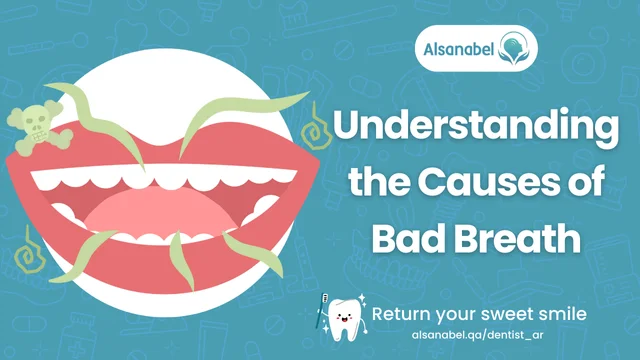
Bad breath can be an embarrassing and frustrating issue that affects millions of people worldwide. While it is common for everyone to experience occasional bad breath, persistent halitosis can indicate an underlying health problem. Poor oral hygiene, dietary habits, medical conditions, and even dehydration can all contribute to the unpleasant smell. Fortunately, there are various methods available for bad breath treatment that can help individuals achieve long-lasting freshness.
In this article, we will explore effective Halitosis treatment options, home remedies, and professional solutions that can serve as a fresh breath solution. By the end of this guide, you will have a clear understanding of how to eliminate odor removal issues and maintain optimal oral hygiene.
Understanding the Causes of Bad Breath
Before diving into bad breath treatment strategies, it’s crucial to understand what causes it. Bad breath can originate from several sources, ranging from poor oral care to serious medical conditions.

1. Poor Oral Hygiene
- Neglecting regular brushing and flossing leads to bacterial buildup on the teeth and tongue.
- Plaque accumulation creates an environment for foul-smelling bacteria to thrive.
- Food particles stuck between teeth decompose, releasing unpleasant odors.
2. Dietary Choices
- Foods like garlic, onions, and spicy meals contain sulfur compounds that linger in the mouth and bloodstream.
- Coffee and alcohol contribute to dry mouth, exacerbating bad breath issues.
- High-sugar diets encourage bacterial growth, leading to odor production.
3. Dry Mouth (Xerostomia)
- Saliva plays a crucial role in flushing out bacteria and food debris.
- A lack of saliva due to dehydration or medical conditions results in persistent bad breath.
- Mouth breathing and certain medications can also reduce saliva production.
4. Smoking and Tobacco Use
- Smoking leaves strong odors in the mouth while drying out oral tissues.
- Nicotine use leads to gum disease, further worsening odor removal problems.
5. Underlying Medical Conditions
- Conditions like acid reflux, diabetes, respiratory infections, and kidney disease can cause chronic bad breath.
- Sinus infections and postnasal drip contribute to bacteria buildup in the throat and mouth.
Effective Bad Breath Treatment Options
Fortunately, there are numerous Halitosis treatment solutions available, ranging from daily hygiene improvements to professional dental interventions.
1. Daily Oral Hygiene Routine
The first and most effective step in bad breath treatment is maintaining a consistent oral hygiene routine.
- Brush Twice a Day: Use fluoride toothpaste to remove plaque and bacteria.
- Floss Daily: Eliminates trapped food particles that can cause odor removal issues.
- Clean Your Tongue: Bacteria and food residue accumulate on the tongue, leading to bad breath.
- Use an Antibacterial Mouthwash: Helps kill bacteria and freshen breath instantly.
2. Professional Dental Care
If home remedies fail to work, seeking professional dental assistance may be necessary.
- Regular Dental Checkups: Dentists can detect underlying issues causing bad breath.
- Deep Cleaning & Scaling: Removes plaque and tartar buildup that may contribute to halitosis.
- Treat Gum Disease: Addressing periodontal disease can significantly reduce bad breath.
3. Hydration and Saliva Stimulation
A dry mouth is one of the leading causes of bad breath. Ensuring adequate hydration is essential.
- Drink Plenty of Water: Helps wash away food particles and bacteria.
- Chew Sugar-Free Gum: Stimulates saliva production and prevents dry mouth.
- Avoid Caffeinated and Alcoholic Beverages: These drinks cause dehydration and worsen Halitosis treatment issues.
Natural Fresh Breath Solution Remedies
For those looking for natural alternatives to commercial Halitosis treatment, several home remedies can effectively reduce bad breath.
1. Green Tea & Herbal Teas
- Contains antioxidants that fight bacteria responsible for bad breath.
- Chamomile and peppermint tea provide a fresh breath solution by neutralizing odors.
2. Apple Cider Vinegar Rinse
- Balances oral pH levels and reduces bacterial growth.
- Mix a tablespoon with water and swish for 30 seconds.
3. Parsley and Fresh Herbs
- Contains chlorophyll, a natural deodorizer that combats odor removal issues.
- Chewing fresh parsley or mint leaves can help neutralize bad breath.
4. Baking Soda Mouth Rinse
- A natural antiseptic that kills bacteria causing Halitosis treatment concerns.
- Mix a teaspoon with warm water and rinse your mouth for 30 seconds.
The Role of Diet in Preventing Bad Breath
What you eat plays a crucial role in maintaining a fresh breath solution. Certain foods contribute to odor, while others help fight bacteria and neutralize bad breath.
Foods That Worsen Bad Breath
❌ Onions and garlic contain sulfur compounds that linger in the body.
❌ Sugary foods fuel bacteria growth, leading to bad breath.
❌ Dairy products can contribute to a strong odor due to amino acid breakdown.
Foods That Improve Breath Freshness
✅ Crunchy fruits and vegetables (apples, carrots, celery) clean teeth naturally.
✅ Yogurt contains probiotics that reduce bad breath bacteria.
✅ Watermelon and citrus fruits promote saliva production, combating dry mouth.
Can Mouthwash Help with Bad Breath?
Yes, mouthwash can play a crucial role in bad breath treatment, but not all are equally effective.
Choosing the Right Mouthwash
✔ Alcohol-free mouthwash prevents dry mouth.
✔ Antibacterial formulas eliminate odor-causing bacteria.
✔ Mouthwashes with zinc compounds neutralize sulfur compounds.
How to Use Mouthwash Properly
- Rinse for at least 30 seconds for full antibacterial effects.
- Use after brushing and flossing for maximum impact.
- Avoid eating or drinking immediately after rinsing.
When to See a Dentist for Bad Breath?
While occasional bad breath is normal, persistent halitosis may require professional evaluation.
Signs You Should Visit a Dentist
- Chronic bad breath despite good oral hygiene.
- Gum bleeding, swelling, or persistent dry mouth.
- Pain or discomfort when chewing or swallowing.
- White coating on the tongue or unusual mouth sores.
Dental Treatments for Chronic Bad Breath
- Gum Disease Therapy: Treats infections causing bad breath.
- Cavity Fillings & Restorations: Addresses decayed teeth that trap odor-causing bacteria.
- Tonsil Stone Removal: Reduces bacteria accumulation in the throat.
Frequently Asked Questions

1. What Causes Bad Breath?
Bad breath is caused by bacteria buildup in the mouth, poor oral hygiene, dry mouth, certain foods, smoking, and medical conditions like acid reflux or sinus infections.
2. How to Treat Halitosis?
Improving oral hygiene, staying hydrated, using antibacterial mouthwash, chewing sugar-free gum, and addressing underlying dental or medical conditions can help eliminate bad breath.
3. What Foods Cause Bad Breath?
Garlic, onions, coffee, alcohol, and dairy products contribute to unpleasant odors by releasing sulfur compounds or promoting bacterial growth.
4. Can Mouthwash Help with Bad Breath?
Yes, mouthwash can be an effective fresh breath solution, especially if it contains antibacterial agents that target odor-causing bacteria.
5. When to See a Dentist for Bad Breath?
If bad breath persists despite maintaining good oral hygiene, visiting a dentist is essential to rule out underlying dental issues like gum disease or cavities.
Dealing with bad breath can be frustrating, but with the right bad breath treatment, it is entirely manageable. By maintaining proper oral hygiene, making smart dietary choices, and using natural or professional Halitosis treatment options, you can achieve a lasting fresh breath solution. If bad breath persists, consulting a dentist can help uncover and address any underlying causes for odor removal. With the right approach, fresh breath and improved oral health are within reach.
